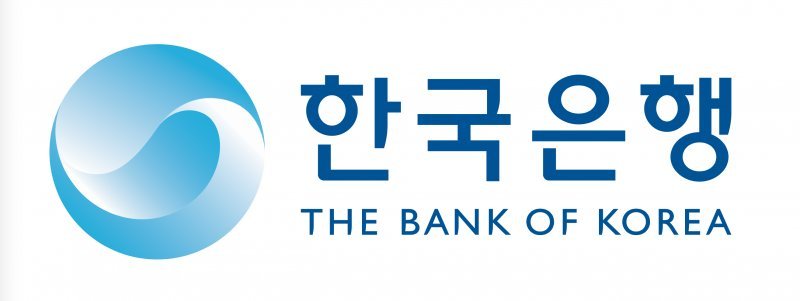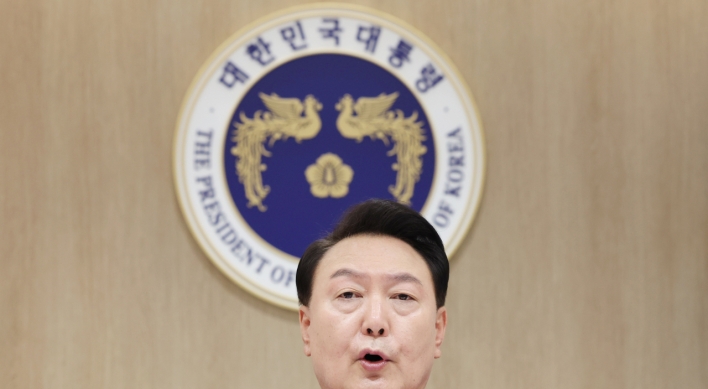Aging society drags actual interest rate down 3% over 20 years: BOK
By Bae HyunjungPublished : Jan. 13, 2020 - 15:40
South Korea’s growing longevity has had the effect of lowering the country’s actual interest rate by 3 percent over the past 20 years, central bank data showed Monday.
According to the latest report issued by the Bank of Korea’s Economic Research Institute, Asia’s fourth-largest economy saw its ratio of senior citizens -- those aged 65 or older compared to those aged 20 to 64 -- soar to 19.4 percent in 2015 from 9.6 percent in 1995.
In a causal relationship with such demographic change, the country’s real interest rate has dropped 3 percent from 1995 to 2018, the report claimed.

Real interest rate adjusts the nominal interest rate so as to exclude the effects of inflationary fluctuations, seeking to reflect the true yield for lenders and cost for borrowers. The given figure is calculated by subtracting the inflation rate from the observed nominal interest rate.
The country’s real interest rate has plunged 8.6 percentage points, to 0.4 percent in 2018 from 9 percent in 1995, indicating that an aging society has accounted for almost one-third of such midterm change, according to data.
“Due to aging population, the average duration of life after retirement has extended, which consequently led to increased savings and decreased consumption,” the report said.
“The aging society accounts for a considerable part of Korea’s real interest rate downtrend over the years.”
Increased life expectancy also had twice as much of a rate-cutting effect than the actual population change, the report’s authors added.
“When expecting a longer life span, people instantly tend to increase savings,” they said.
“Should the aging society phenomenon prolong, the real interest rate is likely to fall further in the upcoming years.”
Korea’s nominal base interest rate currently stands at a record-low 1.25 percent, after two easing actions last year -- in July and October -- to respond to the slower-than-expected growth pace.
Meanwhile, the BOK is largely expected to freeze the policy rate in its rate-setting Monetary Policy Board meeting slated for Friday.
BOK Gov. Lee Ju-yeol said earlier this year that growth and inflation could rebound in 2020, amid some recovery signs of the semiconductors market, but added that a sharp increase remains unlikely due to external uncertainties, hinting at a wait-and-see approach.
By Bae Hyun-jung (tellme@heraldcorp.com)
According to the latest report issued by the Bank of Korea’s Economic Research Institute, Asia’s fourth-largest economy saw its ratio of senior citizens -- those aged 65 or older compared to those aged 20 to 64 -- soar to 19.4 percent in 2015 from 9.6 percent in 1995.
In a causal relationship with such demographic change, the country’s real interest rate has dropped 3 percent from 1995 to 2018, the report claimed.

Real interest rate adjusts the nominal interest rate so as to exclude the effects of inflationary fluctuations, seeking to reflect the true yield for lenders and cost for borrowers. The given figure is calculated by subtracting the inflation rate from the observed nominal interest rate.
The country’s real interest rate has plunged 8.6 percentage points, to 0.4 percent in 2018 from 9 percent in 1995, indicating that an aging society has accounted for almost one-third of such midterm change, according to data.
“Due to aging population, the average duration of life after retirement has extended, which consequently led to increased savings and decreased consumption,” the report said.
“The aging society accounts for a considerable part of Korea’s real interest rate downtrend over the years.”
Increased life expectancy also had twice as much of a rate-cutting effect than the actual population change, the report’s authors added.
“When expecting a longer life span, people instantly tend to increase savings,” they said.
“Should the aging society phenomenon prolong, the real interest rate is likely to fall further in the upcoming years.”
Korea’s nominal base interest rate currently stands at a record-low 1.25 percent, after two easing actions last year -- in July and October -- to respond to the slower-than-expected growth pace.
Meanwhile, the BOK is largely expected to freeze the policy rate in its rate-setting Monetary Policy Board meeting slated for Friday.
BOK Gov. Lee Ju-yeol said earlier this year that growth and inflation could rebound in 2020, amid some recovery signs of the semiconductors market, but added that a sharp increase remains unlikely due to external uncertainties, hinting at a wait-and-see approach.
By Bae Hyun-jung (tellme@heraldcorp.com)












![[KH Explains] How should Korea adjust its trade defenses against Chinese EVs?](http://res.heraldm.com/phpwas/restmb_idxmake.php?idx=644&simg=/content/image/2024/04/15/20240415050562_0.jpg&u=20240415144419)






